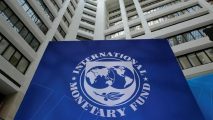Privacy Overview
This website uses cookies so that we can provide you with the best user experience possible. Cookie information is stored in your browser and performs functions such as recognising you when you return to our website and helping our team to understand which sections of the website you find most interesting and useful.

















4, February 2025
IMF pushes for reform of Cameroon’s investment incentive law 0
The International Monetary Fund (IMF) is not satisfied with how Cameroon has implemented its 2013 law on investment incentives. In a statement released on January 30 announcing an agreement with the Cameroonian government on the latest review of their ongoing economic and financial program, the institution called for a revision of the law. This legislation grants tax and customs exemptions to investors for periods ranging from five to ten years.
“There have been delays in the implementation of the structural reform agenda. To attain the ambitious objectives of the national development strategy (SND30), the authorities are encouraged to complete important measures set out in the program concerning governance in the extractive industry sector, the business climate, SOE reform, and public financial management. Specifically, the mission urged the authorities to advance long-pending work on the SONARA restructuring plan and revise the 2013 law to streamline investment incentives,” the IMF said.
In other words, from the IMF’s perspective, the 2013 investment incentives law, which has been in effect since 2014 and was already revised once in 2017, is not delivering the expected results. This is particularly relevant as the government is increasingly focused on boosting tax and customs revenue to meet growing financial needs.
IMF and Business Leaders Aligned
The IMF is not alone in criticizing how the 2013 law has been implemented. Business leaders in Cameroon have also raised concerns. “Investment incentives in Cameroon need a complete overhaul. Since the law was enacted in April 2013, the government has introduced new policies and reforms affecting investment. As a result, several provisions in the regulatory framework have become outdated and are now misaligned with current government priorities,” said Célestin Tawamba, President of the Cameroon Employers’ Association (GECAM), on September 18, 2024, in Douala during the annual economic meeting of the business community.
Tawamba specifically pointed out the excessive and unjustified duration of the installation (five to seven years) and operational (up to ten years) phases, during which companies benefit from tax and customs exemptions under this law. “These extended periods allow some companies to use these benefits for purposes other than their declared investment plans or to continue enjoying installation-phase advantages even when they have already moved into full operation,” he explained.
Tawamba criticized the unclear eligibility criteria, which “create room for arbitrary decisions and do not ensure fair treatment of applications.” He also noted that the law does not take into account the unique needs of remote regions, which is crucial for balanced regional development in line with the country’s decentralization efforts. Moreover, he argued that some provisions fail to achieve the law’s intended objectives, leading to significant revenue losses for the government while increasing the tax burden on existing businesses that have to compensate for the shortfall.
More Than CFA113 Billion in Tax Breaks in 2023
Given these issues, the GECAM president stressed the need for a comprehensive reform of the investment incentives law to make it more effective. This is especially important, he argued, since Cameroon granted CFA198 billion in tax and customs incentives, yet the wealth generated from these benefits was only about CFA41 billion, representing just 0.0018% of GDP.
According to a report from the Ministry of Finance on tax expenditures in 2023, the government forfeited CFA113.5 billion in tax and duty revenues that year to support private investment projects. This amount accounted for 25.2% of the total tax expenditures approved by the government in 2023 and equaled 3.1% of the tax and customs revenues collected that year.
To put things into perspective, during a speech at the Africa CEO Forum on February 23, 2023, Marthe Angeline Mindja, the late Director General of the Investment Promotion Agency (API), revealed that API had facilitated the signing of 302 agreements with private sector companies, totaling CFA5.474 trillion in projected investments and an estimated 110,000 direct jobs. “Based on an evaluation of 100 API-approved companies that implemented their projects between 2014 and 2019, actual investments amounted to CFA987 billion, resulting in 12,050 direct jobs created,” she noted.
Source: Business in Cameroon